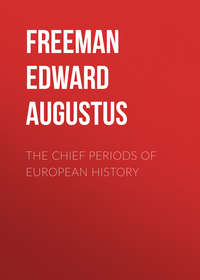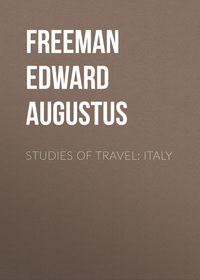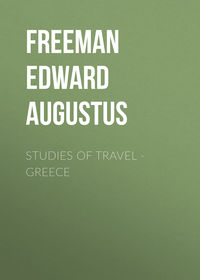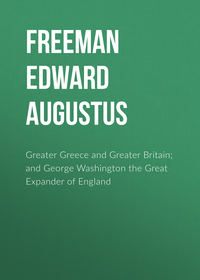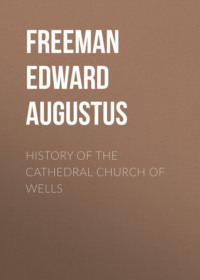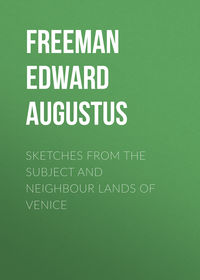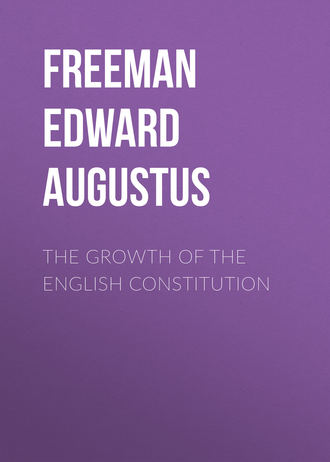 полная версия
полная версияThe Growth of the English Constitution
It should be remembered that Sir Thomas More, though he refused to swear to the preamble of the oath prescribed by the Act of Supremacy, was ready to swear to the order of succession which entailed the Crown on the issue of Anne Boleyn. On his principles the issue of Anne Boleyn would be illegitimate; but he also held that Parliament could settle the Crown upon anybody, on an illegitimate child of the King or on an utter stranger; to the succession therefore he had no objection to swear.
For a parallel to the extraordinary power thus granted to Henry we have to go back to the days of Æthelwulf.
174
The position of the daughters of Henry the Eighth was of course practically affected by the fact that each was the child of a mother who was acknowledged as a lawful wife at the time of her daughter’s birth. There was manifest harshness in ranking children so born with ordinary illegitimate children; but, in strictness of Law, as Henry married Anne Boleyn while Katharine of Aragon was alive, the daughter of Katharine and the daughter of Anne could not both be legitimate. The question was, which marriage was lawful. It should also be remembered that the marriage of Anne Boleyn was declared void, and her daughter declared illegitimate, on grounds – whatever they were – which had nothing to do with the earlier question of the marriage and divorce of Katharine.
175
See Hallam, i. 129; Lingard, vi. 239, 243. The Act 13 Elizabeth, c. 1, declares it to be treason “yf any person shall in any wyse holde and affyrme or mayntayne that the Common Lawes of this Realme not altred by Parlyament, ought not to dyrecte the Ryght of the crowne of England, or that our said sovrayne Ladye Elizabeth the Quenes Majestie that nowe is, with and by the aucthoritye of the Parlyament of Englande is not able to make Lawes and Statutes of suffycyent force and valyditie to lymit and bynd the Crowne of this Realme, and the Descent Lymitacion Inheritaunce and Government thereof.” The like is the crime of “whosoever shall hereafter duryng the Lyef of our said Soveraigne Ladye, by any Booke or Worke prynted or written, dyrectly and expresly declare and affyrme at any tyme before the same be by Acte of Parlyament of this Realme established and affyrmed, that any one particular person whosover it be, is or ought to be the ryght Heire and Successor to the Queenes Majestie that nowe is (whome God longe preserve) except the same be the naturall yssue of her Majesties bodye.”
This statute may possibly be taken as setting aside the claims of the House of Suffolk; but, if so, it sets aside the claims of the House of Stewart along with them.
176
James’s right was acknowledged by his own first Parliament, just as the claims of other Kings who entered in an irregular way had been. It should be marked however that he was crowned before he was acknowledged. The Act 1 Jac. I. c. 1, declares that “immediatelie upon the Dissolution and Decease of Elizabeth late Queene of England, the Imperiall Crowne of the Realme of England, and of all the Kingdomes Dominions and Rights belonging to the same, did by inherent Birthright and lawfull undoubted Succession, descend and come to your moste excellent Majestie, as beinge lineallie justly and lawfullie next and sole Heire of the Blood Royall of this Realme as is aforesaid.” It is worth noticing that in this Act we get the following definition of Parliament; “this high Court of Parliament, where all the whole Body of the Realm and every particular member thereof, either in Person or by Representation (upon their own free elections), are by the Laws of this Realm deemed to be personally present.”
177
The fact that James the First, a King who came in with no title whatever but what was given him by an Act of Parliament passed after his coronation, was acknowledged without the faintest opposition is one of the most remarkable things in our history. Hallam (i. 294) remarks that “there is much reason to believe that the consciousness of this defect in his parliamentary title put James on magnifying, still more than from his natural temper he was prone to do, the inherent rights of primogenitory succession, as something indefeasible by the legislature; a doctrine which, however it might suit the schools of divinity, was in diametrical opposition to our statutes.” Certainly no opposition can be more strongly marked than that between the language of James’s own Parliament and the words quoted above from 13 Eliz. c. 1. But see the remarks of Hallam a few pages before (i. 288) on the kind of tacit election by which it might be said that James reigned. “What renders it absurd to call him and his children usurpers? He had that which the flatterers of his family most affected to disdain – the will of the people; not certainly expressed in regular suffrage or declared election, but unanimously and voluntarily ratifying that which in itself could surely give no right, the determination of the late Queen’s Council to proclaim his accession to the throne.”
178
Whitelocke’s Memorials, 367. “The heads of the charge against the King were published by leave, in this form: That Charles Stuart, being admitted King of England, & therein trusted with a limited power, to govern by, & according to the Laws of the Land, & not otherwise, & by his trust being obliged, as also by his Oath, & office to use the power committed to him, for the good & benefit of the people, & for the preservation of their Rights and Privileges,” etc.
At an earlier stage [365] the President had told the King that the Court “sat here by the Authority of the Commons of England: & all your predecessours, & you are responsible to them.” The King answered “I deny that, shew me one Precedent.” The President, instead of quoting the precedents which were at least plausible, told the prisoner that he was not to interrupt the Court. Earlier still the King had objected to the authority of the Court that “he saw no Lords there which should make a Parliament, including the King, & urged that the Kingdom of England was hereditary, & not successive.” The strong point of Charles’s argument undoubtedly was the want of concurrence on the part of the Lords. Both Houses of Parliament had agreed in the proceedings against Edward the Second and Richard the Second.
It is a small point, but it is well to notice that the description of the King as Charles Stewart was perfectly accurate. Charles, the son of James, the son of Henry Stewart Lord Darnley, really had a surname, though it might not be according to Court etiquette to call him by it. The helpless French imitators in 1793 summoned their King by the name of “Louis Capet,” as if Charles had been summoned by the name of “Unready,” “Bastard,” “Lackland,” “Longshanks,” or any other nickname of an earlier King and forefather.
I believe that many people fancy that Guelph or Welf is a surname of the present, or rather late, royal family.
179
The Act 1 William and Mary (Revised Statutes, ii. 11) entailed the Crown “after their deceases,” “to the heires of the body of the said princesse & for default of such issue to the Princesse Anne of Denmarke & the heires of her body & for default of such issue to the heires of the body of the said Prince of Orange.” It was only after the death of “the most hopeful Prince William Duke of Gloucester” that the Crown was settled (12 and 13 Will. III. c. 2; Revised Statutes, ii. 94) on “the most excellent Princess Sophia Electress and Dutchess Dowager of Hannover, daughter of the most excellent Princess Elizabeth, late Queen of Bohemia, daughter of our late sovereign lord King James the First of happy memory,” “and the heirs of her body being protestants.”
180
We hardly need assurance of the fact, but if it were needed, something like an assurance to that effect was given by an official member of the House during the session of 1872. At all events we read in Sir T. E. May (ii. 83); “The increased power of the House of Commons, under an improved representation, has been patent and indisputable. Responsible to the people, it has, at the same time, wielded the people’s strength. No longer subservient to the crown, the ministers, and the peerage, it has become the predominant authority in the state.” But the following strange remark follows: “But it is characteristic of the British constitution, and a proof of its freedom from the spirit of democracy, that the more dominant the power of the House of Commons, – the greater has been its respect for the law, and the more carefully have its acts been restrained within the proper limits of its own jurisdiction.”
ὦ δημοκρατία, ταῦτα δῆτ' ἀνασχετά;
Has Mr. Grote lived and written so utterly in vain that a writer widely indeed removed from the vulgar herd of oligarchic babblers looks on “the spirit of democracy” as something inconsistent with “respect for the law”?
181
The story is told (Plutarch, Lycurgus, 7), that King Theopompos, having submitted to the lessening of the kingly power by that of the Ephors, was rebuked by his wife, because the power which he handed on to those who came after him would be less than what he had received from those who went before him. ὃν καί φασιν ὑπὸ τῆς ἑαυτοῦ γυναικὸς ὀνειδιζόμενον ὡς ἐλάττω παραδώσοντα τοῖς παισὶ τὴν βασιλείαν, ἢ παρέλαβε, μείζω μὲν οὖν, εἰπεῖν, ὅσῳ χρονιωτέραν· τῷ γὰρ ὄντι τὸ ἄγαν ἀποβαλοῦσα μετὰ τοῦ φθόνου διέφυγε τὸν κίνδυνον. Aristotle also (Pol. v. 11) tells the story to the same effect, bringing it in with the comment, ὅσῳ γὰρ ἂν ἐλαττόνων ὦσι κύριοι, πλείω χρόνον ἀναγκαῖον μένειν πᾶσαν τὴν ἀρχήν· αὐτοί τε γὰρ ἧττον γίνονται δεσποτικοὶ καὶ τοῖς ἤθεσιν ἴσοι μᾶλλον, καὶ ὑπὸ τῶν ἀρχομένων φθονοῦνται ἧττον. διὰ γὰρ τοῦτο καὶ ἡ περὶ Μολοττοὺς πολὺν χρόνον βασιλεία διέμεινεν, καὶ ἡ Λακεδαιμονίων διὰ τὸ ἐξ ἀρχῆς τε εἰς δύο μέρη διαιρεθῆναι τὴν ἀρχήν, καὶ πάλιν Θεοπόμπου μετριάσαντος τοῖς τε ἄλλοις καὶ τὴν τῶν ἐφόρων ἀρχὴν ἐπικαταστήσαντος· τῆς γὰρ δυνάμεως ἀφελὼν ηὔξησε τῷ χρόνῳ τὴν βασιλείαν, ὥστε τρόπον τινὰ ἐποίησεν οὐκ ἐλάττονα ἀλλὰ μείζονα αὐτήν. The kingdom of the Molossians, referred to in the extract from Aristotle, is one of those states of antiquity of which we should be well pleased to hear more. Like the Macedonian kingdom, it was an instance of the heroic kingship surviving into the historical ages of Greece. But the Molossian kingship seems to have been more regular and popular than that of Macedonia, and to have better deserved the name of a constitutional monarchy. The Molossian people and the Molossian King exchanged oaths not unlike those of the Landesgemeinde and the Landammann of Appenzell-Ausserrhoden, the King swearing to rule according to the laws, and the people swearing to maintain the kingdom according to the laws. In the end the kingdom changed into a Federal Republic. See History of Federal Government, i. 151.
182
It is simply frivolous in the present state of England to discuss the comparative merits of commonwealths and constitutional monarchies with any practical object. Constitutional monarchy is not only firmly fixed in the hearts of the people, but it has some distinct advantages over republican forms of government, just as republican forms of government have some advantages over it. It may be doubted whether the people have not a more real control over the Executive, when the House of Commons, or, in the last resort, the people itself in the polling-booths (as in 1868), can displace a Government at any moment, than they have in constitutions in which an Executive, however much it may have disappointed the hopes of those who chose it, cannot be removed before the end of its term of office, except on the legal proof of some definite crime. But in itself, there really seems no reason why the form of the Executive Government should not be held to be as lawful a subject for discussion as the House of Lords, the Established Church, the standing army, or anything else. It shows simple ignorance, if it does not show something worse, when the word “republican” is used as synonymous with cut-throat or pickpocket. I do not find that in republican countries this kind of language is applied to the admirers of monarchy; but the people who talk in this way are just those who have no knowledge of republics either in past history or in present times. They may very likely have climbed a Swiss mountain, but they have taken care not to ask what was the constitution of the country at its foot. They may even have learned to write Greek iambics and to discuss Greek particles; but they have learned nothing from the treasures of wisdom taught by Grecian history from Herodotus to Polybios.
I have discussed the three chief forms of executive government, the constitutional King and his Ministry, the President, and the Executive Council, in the last of my first series of Historical Essays.
183
Iliad, i. 250: —
τῷ δ' ἤδη δύο μὲν γενεαὶ μερόπων ἀνθρώπων
ἐφθίαθ', οἵ οἱ πρόσθεν ἅμα τράφεν ἠδ' ἐγένοντο
ἐν Πύλῳ ἠγαθέῃ, μετὰ δὲ τριτάτοισιν ἄνασσεν.


